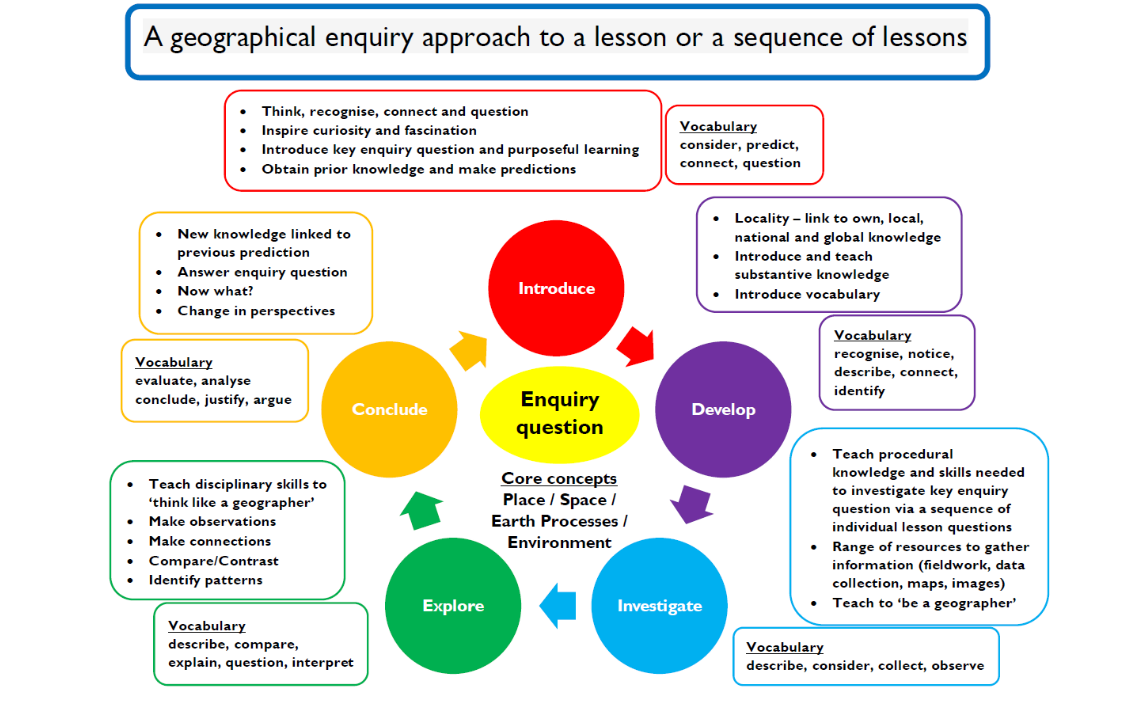Geography
Pupils and staff at Knightwood are inspired and intrigued by the world around them. We all care about the actions that leave a footprint on our planet.
Intent:
Children at Knightwood are encouraged to respect the world around them. This is achieved through developing a greater understanding and knowledge of the UK and abroad, as well as their place within it. Celebrating the rich diversity of cultures in school, we encourage our families and the local community to share their own knowledge and experiences. Our curriculum provides the knowledge required as well as the skills needed to understand how our actions have an impact on the wider world, through the understanding of places, processes and people. Through enquiry based learning, children will develop an interest in our world, thus fostering a curiosity to learn beyond the classroom.
Implementation:
The geography curriculum at Knightwood is structured around the following themes across Key stages 1 and 2:
- Locational Knowledge
- Place Knowledge
- Human and Physical Geography
- Geographical Skills and Fieldwork
This builds on the EYFS curriculum:
- Understanding the World (People and Communities)
- Understanding the World (The World)
This is achieved through careful progression of skills and knowledge, allowing children to build on prior learning and consolidate their knowledge. Geography at Knightwood is taught through an enquiry-based approach where children are encouraged to ask and answer questions. Feeding in to this are the geographical skills of identifying, describing, comparing, explaining and evaluating.
Lessons incorporate practical tasks using our school grounds, the local area and the wider environment. Each year group will undertake at least one mapping activity and one fieldwork investigation. Connections are made between prior learning, other curriculum subjects, personal experiences and the wider world.
Children will be given the opportunity to think about how what they have learnt helps them to understand that their actions leave a footprint on our planet and to reflect on their footprint throughout the years.

Intent:
By the time pupils leave Knightwood children will:
- Have a secure understanding of the places they have studied and where they are in the World.
- Have developed a range of fieldwork and mapping skills that can be used across the curriculum.
- Have a coherent understanding of geographical vocabulary.
- Have a curiosity about the world and an interest in finding out for themselves through asking and answering questions.
- Have an understanding of how humans can have both a positive and negative impact on the world around them.
- Have their own, reasoned opinions on geographical events.
Children record their learning in different ways to ensure our curriculum is accessible for all. Therefore, impact is measured through the following methods: pupil conferencing, practical learning, moderation of written work in their books, low stake quizzing and a celebration of learning at the end of each unit. Teachers use careful assessment for learning through targeted questioning to identify misconceptions which they address through adjustments to planning and teaching.